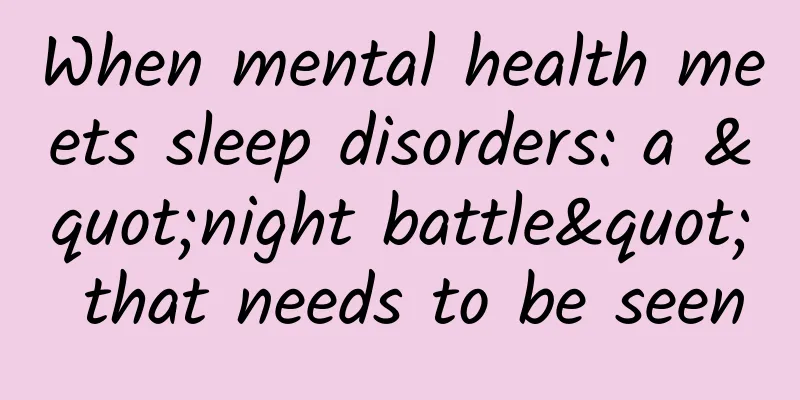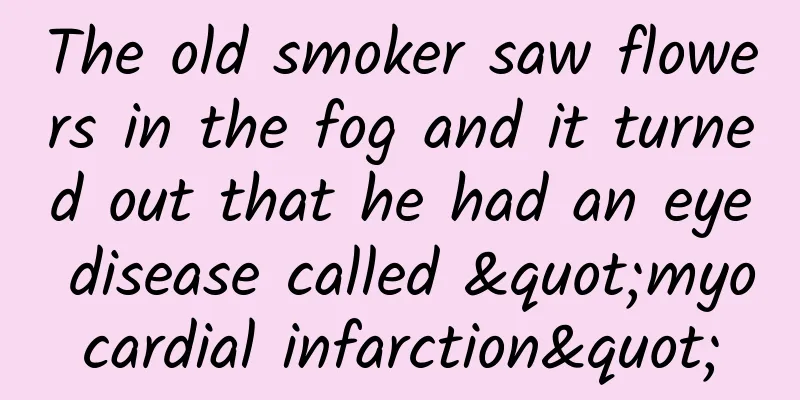When mental health meets sleep disorders: a "night battle" that needs to be seen

|
March 21 is World Sleep Day. This year's theme is "Healthy Sleep, a Priority", reminding us to pay attention to the impact of sleep quality on physical and mental health. However, for many people with mental illness, the night is not a peaceful haven, but a silent struggle with sleep disorders. Sleep and mental health: a two-sided mirror of mutual cause and effect Studies have shown that more than 70% of patients with mental illness have sleep disorders, including insomnia, early awakening, dreaminess or circadian rhythm disorders. Long-term sleep problems will aggravate symptoms such as anxiety, depression, and cognitive decline, forming a vicious cycle. Sleep is not only a physiological need, but also an emotion regulator and a "detoxification" window for the brain. During deep sleep, cerebrospinal fluid accelerates the clearance of beta-amyloid protein associated with Alzheimer's disease, while fragmented sleep may weaken psychological resilience. Case story: The "Tulip Girl" trapped by insomnia Ms. Y, 27, was once an optimistic and cheerful comic illustrator. Two years ago, due to work pressure, she gradually developed symptoms such as low mood and loss of interest, and was diagnosed with depression. However, her sleep was the first thing that "warned" her before her mood: it took her more than 2 hours to fall asleep every night, and she woke up at 3 a.m. and had difficulty falling asleep again. She described herself as "like being pushed into muddy water, obviously tired but unable to breathe." Insomnia caused her to be confused during the day and even had suicidal thoughts. After the doctor's evaluation, Ms. Y was diagnosed with "depression with chronic insomnia." The doctor did not rush to prescribe sleeping pills, but adjusted her sleep cognition through cognitive behavioral therapy (CBT-I), used "sleep restriction" to rebuild her biological clock, and combined it with antidepressants to improve the root cause of her emotions. Three months later, her sleep time increased from 3 hours per night to 6 hours, and her mood score dropped significantly. "I can finally get a full night's sleep before dawn, which gives me the strength to fight depression," Ms. Y said during the follow-up visit. Common sleep traps for people with mental illness 1. Depression: early awakening, shallow sleep and frequent dreams, more severe in the morning and less severe at night; 2. Anxiety disorder: difficulty falling asleep, repeated worrying; 3. Bipolar disorder: reduced sleep demand during manic phase and excessive sleepiness during depressive phase; 4. Post-traumatic stress disorder (PTSD): frequent nightmares and night terrors; 5. Schizophrenia: day and night reversal and disordered sleep structure. Breaking the vicious cycle: scientific intervention is the key Daily advice for patients - Reestablishing the rhythm: fixing the wake-up time (even if you have insomnia) and avoiding making up for sleep during the day; - Create a sleep ritual: dim the lights and stay away from electronic devices one hour before bedtime; - Beware of "forced sleep" anxiety: If you do not fall asleep after lying in bed for 20 minutes, get up and do some relaxing activities; - Reduce sources of stimulation: avoid caffeine in the afternoon and avoid overeating at dinner. Professional treatment - Medication: short-term use of non-benzodiazepine sedatives or benzodiazepine sedatives, and antidepressants with sleep-inducing effects can also be selected; - Physical therapy: transcranial magnetic stimulation (rTMS), biofeedback therapy; - Psychological intervention: mindfulness meditation, cognitive behavioral therapy for sleep; - Polysomnography (PSG): Accurately identifies comorbidities such as sleep apnea and periodic limb movement disorder, becoming the "gold standard" for diagnosing sleep disorders. In 2025, “Healthy sleep, the priority” will make every night the starting point of healing. Sleep disorders are not "pretentious", but a distress signal from the brain. If you or your family members have been troubled by sleep problems for a long time, especially when accompanied by emotional and behavioral changes, please seek help from the neurology or psychiatry sleep clinic in time. Treating insomnia is to repair the soil of the spirit. Beijing Anding Hospital's Psychiatric and Neurological Ward provides polysomnography (PSG) examinations, which can clearly diagnose sleep disorders for every insomnia patient and provide personalized diagnosis and treatment. May every night light illuminate the way to a peaceful sleep. May you have a good sleep tonight. Article Author Dong Kai Chief Physician Expertise: diagnosis and treatment of vascular cognitive dysfunction, post-stroke sleep disorders, post-stroke depression and anxiety, cerebrovascular disease, cerebral infarction, cerebral hemorrhage, and cerebral artery stenosis. Age range of patients: >16 years old. Author: Dong Kai Editor of this issue: Zheng Yankun Proofreading: Sun Fukang, Li Guanyan Source: Beijing Anding Hospital |
>>: Staying up late, catching up on sleep, snoring... You may have made these sleep mistakes
Recommend
Precautions for acne treatment
Acne is something that every girl doesn't wan...
What is the best medicine for women with frequent urination?
Female friends should pay attention if they exper...
There are three reasons why follicles grow slowly
The slow growth of follicles is an abnormal condi...
Colposcopy pictures
Many of my friends may not know what a colposcopy...
What happens when a woman’s left eyelid twitches?
There are many times when people's eyelids tw...
What is the reason for frequent amenorrhea?
Women’s menstruation is a very troublesome thing,...
How to choose the right champagne? What are the storage tips for champagne?
In daily life, many people know a lot about red w...
What to do if you have diarrhea at 50 days of pregnancy
Many women experience diarrhea when they are 50 d...
Does masturbation delay menstruation?
In life, masturbation occurs not only to men but ...
Does the flower language of dianthus mean rejection? When should dianthus seeds be sown?
Dianthus is also called Luoyang Flower. Because i...
What are the benefits of zinc supplementation for women?
Zinc is a trace element that we all know is neede...
Is abortion due to scar pregnancy dangerous?
Scar pregnancy abortion has certain risks. This i...
Why do I feel bloated after drinking yogurt? Ways to relieve bloating
For people who sit in the office for a long time,...
What are the best ways to treat cervical erosion?
We want to have the best way to do anything, beca...
Do I need to rest after medical abortion?
After a medical abortion, you naturally need a pe...









